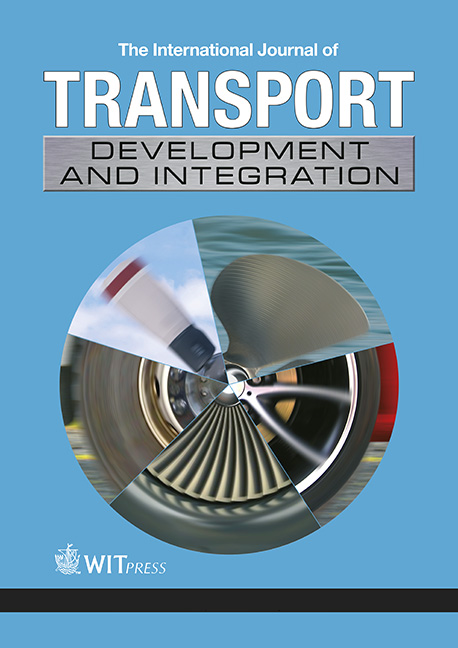Willingness to use MaaS in a developing country
Price
Free (open access)
Volume
Volume 5 (2021), Issue 1
Pages
11
Page Range
57 - 68
Paper DOI
10.2495/TDI-V5-N1-57-68
Copyright
WIT Press
Author(s)
Rodrigo M. Gandia, Fabio Antonialli, Julia R. Oliveira, Joel Y. Sugano, Isabelle Nicolaï & Izabela R. Cardoso Oliveira
Abstract
Mobility as a Service (MaaS) presents a shift from existing ownership-based transports and towards access-based ones and it has been recently gaining ground in urban mobility. MaaS is still surrounded by uncertainties and, its development and applicability are mainly centered in developed countries. However, MaaS is modular, adaptable and applicable to several realities. in this sense, this study aims to examine the perception of different transport models among students and to find the profile that can predict respondents’ willingness to use MaaS in a developing country. This survey was applied to over 300 university students in a Brazilian city (Lavras). Using the cart algorithm, it was obtained classification trees to predict favourable responses related to MaaS use, based on several predictor variables (socio-economic characteristics, means of transport used, distance and other). It was observed that, car users are a little less sensitive to cost than non-car users. For car users, commute alternatives that take longer, with less flexibility and availability – even when offered at lower costs – are not appealing, while non-car users accept and spend more time whether lower costs are available. Also, in general, the tree-based classification model predicted a positive adherence possibility for a MaaS scheme for both car users and non-car users (69%). As conclusions, this study suggests a willingness to MaaS model for creating value for commuters in a developing country. It was found that many MaaS’ characteristics (e.g. app payment, transport integration, monthly plan, customization, etc.) presented a positive predicted possibility of substitution, especially for millennials. Also, it was found that bicycle may be a modal that can be explored for MaaS schemes worldwide, and casual carpooling could be used as strategy to apply MaaS in places where the public transport lacks efficiency.
Keywords
Consumer behaviour, Mobility as a service, Travel behaviour, Tree-based classification model, Urban mobility




